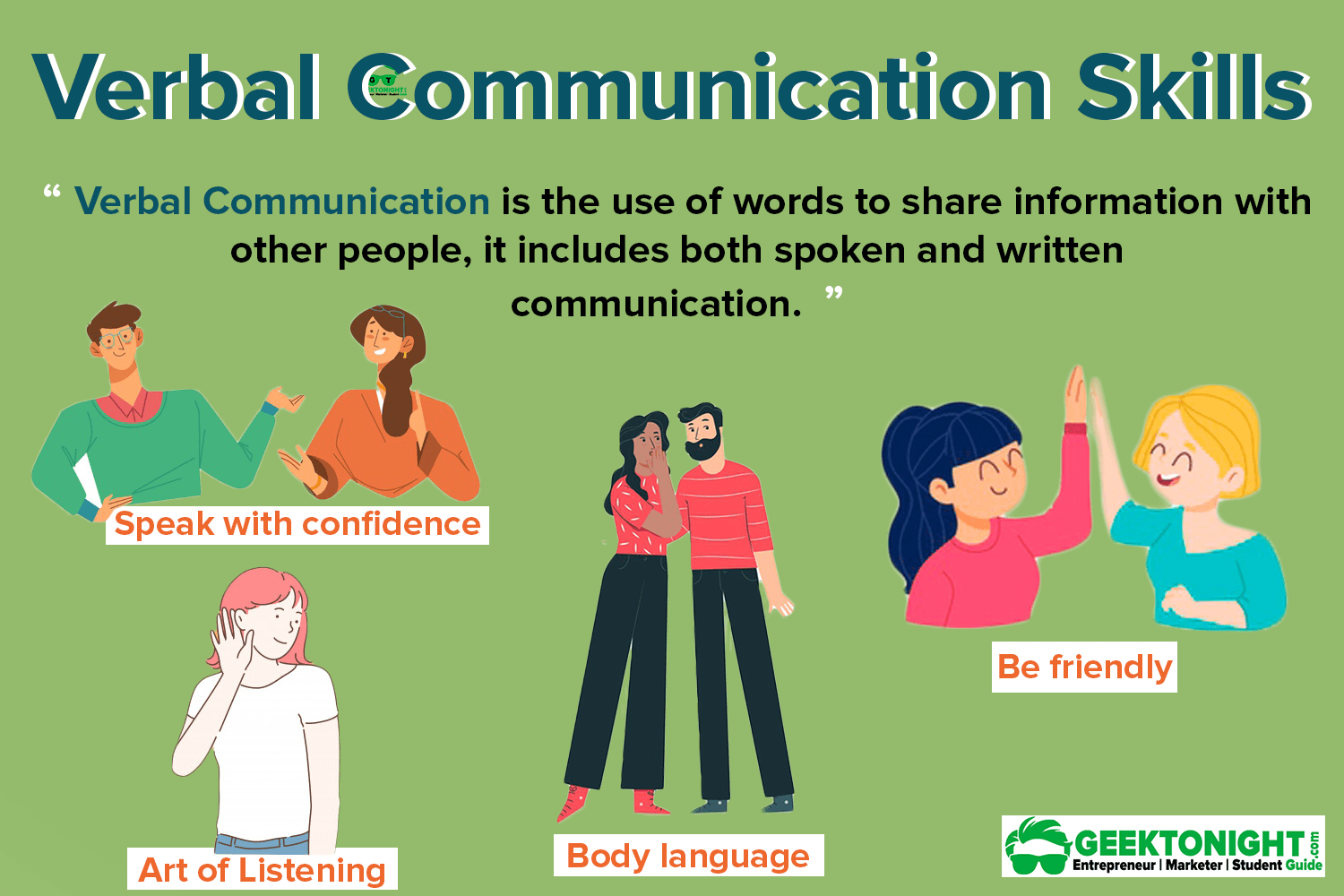
Verbal communication is a crucial aspect of effective interpersonal interactions, whether in personal or professional settings.
Here are some tips to enhance your verbal communication skills:
Active Listening: Pay full attention to the speaker. Show that you are engaged by nodding, making eye contact, and providing verbal cues like "I see," "I understand," or "Go on." Avoid interrupting or formulating your response while the other person is speaking.
Clarity and Pronunciation: Speak clearly and enunciate your words. Ensure that your message is easily understood by using proper pronunciation and avoiding mumbling.
Use of Pauses: Don't rush through your speech. Pause when needed to collect your thoughts, emphasize key points, or allow your audience to process information.
Tone and Pitch: Be mindful of your tone of voice and pitch. Adjust your tone to match the context and message. Avoid speaking in a monotone voice, as it can make you sound disinterested.
Volume Control: Speak at an appropriate volume for the setting. Ensure that everyone can hear you without straining, but avoid being too loud, which can come across as aggressive.
Body Language: Your body language, including gestures, facial expressions, and posture, should align with your words. Maintain open and welcoming body language to convey receptiveness.
Empathy: Show empathy by acknowledging and validating the feelings and perspectives of others. Use phrases like "I understand how you feel" or "That must have been challenging."
Avoid Fillers: Minimize the use of filler words like "um," "uh," "like," and "you know." These can distract from your message and make you appear less confident.
Ask Questions: Encourage dialogue by asking open-ended questions. This not only shows interest but also helps clarify points and gather more information.
Stay on Topic: Stick to the subject at hand and avoid tangents. Rambling can confuse your audience and dilute your message.
Nonverbal Communication: Be aware of your nonverbal cues, such as facial expressions and body language. These can convey a lot of information, sometimes more than words themselves.
Cultural Sensitivity: When communicating with individuals from diverse backgrounds, be sensitive to cultural differences in communication styles and norms. Avoid making assumptions.
Practice: Practice your verbal communication skills regularly. You can do this through role-playing, joining public speaking groups, or simply engaging in conversations.
Feedback: Seek feedback from others on your communication style. Constructive criticism can help you identify areas for improvement.
Confidence: Believe in yourself and your message. Confidence in your communication can make your message more convincing.
Control Emotions: In emotionally charged situations, strive to remain calm and composed. Emotional outbursts can hinder effective communication.
Adaptability: Be adaptable in your communication style based on your audience and context. What works in one situation may not work in another.
Remember that effective verbal communication is a skill that can be developed and refined over time. By being attentive, practicing regularly, and seeking feedback, you can become a more proficient and persuasive communicator.
Thank You